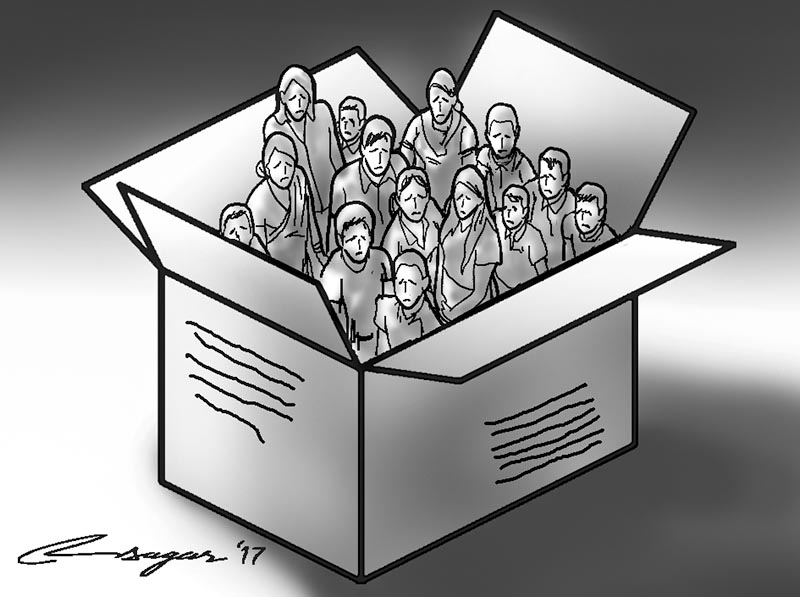Trafficking of women to Gulf countries on the rise
Kathmandu, December 15
High demand of Nepali women for domestic work in Saudi Arabia has given ample opportunity to traffickers as the African countries stopped supplying domestic workers there, says a report prepared by the National Human Rights Commission.
Human smugglers earn at least Rs 400,000 by supplying a domestic worker. Nepali human smugglers have established offices for supplying Nepali domestic workers to Ajman of UAE and Kuwait city. “Although there is no exact data on domestic workers in Gulf countries, it is found that 60 per cent of Nepali domestic workers reach there via Tribhuvan International Airport with the connivance of immigration staff and security personnel,” said the National Report on Trafficking in Persons in Nepal published by the rights body.
It said human smuggling and trafficking could not be effectively eliminated without a greater political and government commitment.
The report also warned that the government’s decision to send workers at a minimum cost had totally failed. The workers have paid at least Rs 50,000 to Rs 900,000 to reach a Gulf country for work. “When asked, employer companies said they had paid money for visa and ticket to the manpower agencies,” the report said.
“Ninety per cent of domestic workers are forced to sign two labour agreements: one in Nepal and another in the destination country. The agreement in Nepal does not have legal status. It is reported that there is a difference in the agreement signed in Nepal and in the destination country in terms of salary, nature of work, working hours, leave and benefits,” it stated.
Further, workers are insured for two years in Nepal but are forced to work in destination countries for three years. As a result, workers do not enjoy insurance cover for the extra one year. “Thus, without elimination of the dual agreement system, exploitation of workers can’t be reduced,” the report states.
Similarly, majority of migrant workers reach Gulf countries without necessary orientation and training in Nepal. There was also evidence of workers producing fake orientation training certificates.






